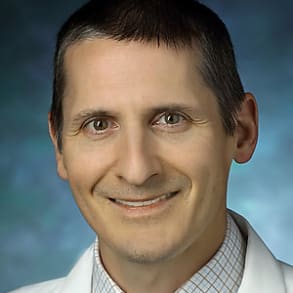Johns Hopkins cardiologist Ari Cedars discusses heart failure and transplant referrals, which was the topic of his presentation during the Eighth World Congress of Pediatric Cardiology and Cardiac Surgery. The presentation addressed data regarding timing and referral for transplants. The presentation also covered the most common long-term consequence of congenital heart disease: heart failure, which presents treatment challenges. This information is important for those who treat the congenital heart disease population.
My name is Ari Cedars and I'm an Associate Professor of Medicine and pediatrics at Johns Hopkins School of Medicine. I had the opportunity to present my data as well as current understanding on heart failure and transplant referral and the appropriate timing of sending patients for advanced heart failure care at the World Congress of pediatric cardiology. This is an important topic because as individuals born with a chronic heart condition, people with congenital heart disease are prone to the development of heart failure long term over the course of their lives. In fact, heart failure is one of the most common reasons for mortality in the congenital heart disease population. As somebody who specializes in the care of adults with congenital heart disease, I frequently will see patients when we begin to suffer with symptoms, suggestive of heart failure. And it's a common question that I receive from peers and and from, from pediatric cardiologists. So like when is the time to refer for advanced heart failure? It's a difficult question to ask because most of the data that we have is based upon individuals who have normal cardiac anatomy. So in my uh discussion, I I go over what the status of present data is on timing of referral for transplant. And um and this, I lean largely and heavily on the uh consensus statement from the action learning network on timing of referral. But the goal being that we refer people not too late at a time when outcomes will be poor. And, and it's a foregone conclusion that they would, people may not survive well after after trains coming and not too early when we might uh refer patients who don't quite need to have a heart transplant or mechanical circulatory support. I look forward to uh having you all watch the video that may have been reported at the time of any time. Thank you.



